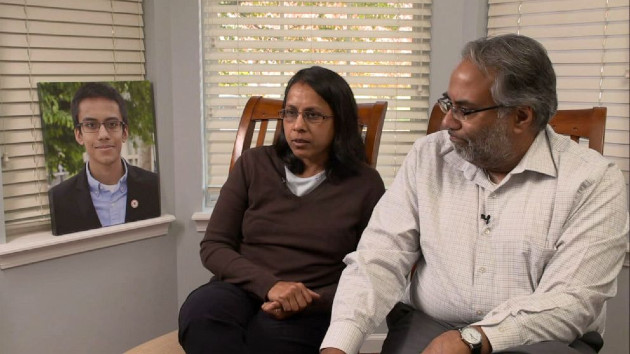
(WASHINGTON) — Former Trump adviser Steve Bannon is scheduled to be sentenced today following his conviction on two counts of criminal contempt of Congress, after he defied a subpoena from the House select committee investigating the Jan. 6 attack on the U.S. Capitol.
He was subpoenaed by the Jan. 6 panel for records and testimony in September of last year. He refused to comply and was found guilty of contempt in July.
Here are the latest developments. All times Eastern:
Oct 21, 8:58 AM EDT
Courthouse arrival
Bannon arrived at the courthouse before 9 a.m. He thanked the TV news cameras for being there and called the Biden administration illegitimate.
He also thanked a woman who was chanting “traitor.”
Oct 21, 8:43 AM EDT
‘This is just Round 1’
Bannon, whose sentencing hearing is scheduled for 9 a.m. EST, blasted members of the Jan. 6 committee on his way out of the courtroom after being found guilty in July.
“We may have lost a battle here today, but we’re not going to lose this war,” he said. “[The jury] came to their conclusion about what was put on in the in that courtroom. But listen, in the closing argument, the prosecutor missed one very important phrase, right? ‘I stand with Trump and the Constitution, and I will never back off that, ever.'”
Bannon’s attorney, David Schoen, said that Bannon’s defense team would appeal the case, saying, “This is just Round 1.”
Oct 21, 8:17 AM EDT
Bannon ‘willing to pay any fine’
Bannon is scheduled to be sentenced this morning in Washington, D.C. He was interviewed as part of the court’s presentencing investigation, but prosecutors said he refused to disclose any information about his finances.
They did, however, say that Bannon insisted “that he is willing and able to pay any fine imposed, including the maximum fine on each count of conviction,” according to Monday’s court filing.
“For his sustained, bad-faith contempt of Congress, the Defendant should be sentenced to six months’ imprisonment — the top end of the Sentencing Guidelines’ range — and fined $200,000 — based on his insistence on paying the maximum fine rather than cooperate with the Probation Office’s routine pre-sentencing financial investigation,” prosecutors said in Monday’s filing.
Oct 21, 6:55 AM EDT
DOJ seeks six months’ jail time for Bannon
The Department of Justice is seeking six months in prison and a fine of $200,000 when Steve Bannon is sentenced this morning, according to a court filing Monday.
The adviser to former President Donald Trump was convicted in July on two counts of criminal contempt of Congress, after he refused to appear before the House select committee investigating the Jan. 6 attack.
“From the time he was initially subpoenaed, the Defendant has shown that his true reasons for total noncompliance have nothing to do with his purported respect for the Constitution, the rule of law, or executive privilege, and everything to do with his personal disdain for the members of Congress sitting on the Committee and their effort to investigate the attack on our country’s peaceful transfer of power,” prosecutors said in Monday’s filing. “[Bannon’s] abject refusal to heed the Committee’s subpoena, under the circumstances with which this country is confronted, could not be more serious.”
Bannon faces a maximum sentence of one year per count, for a total of two years behind bars.
In his own sentencing memorandum, Bannon asked that he be sentenced to a period of probation and is seeking a stay of any sentence pending appeal of his conviction.
Copyright © 2022, ABC Audio. All rights reserved.









